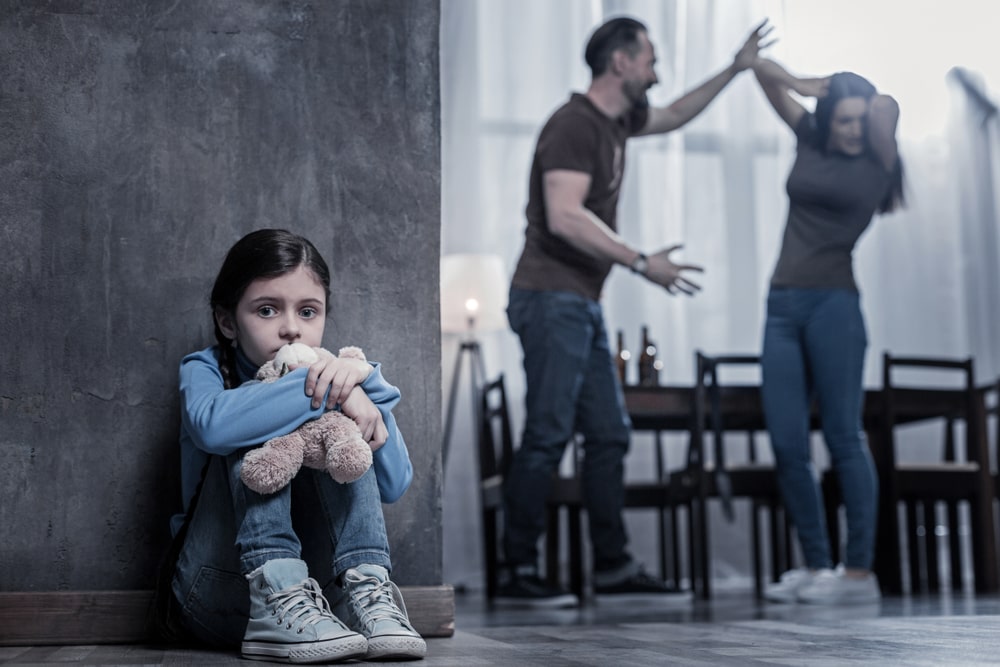How to Recognize the Signs of Domestic Violence
 Domestic violence is an issue that affects millions worldwide. It transcends age, race, gender, and social status. While most people recognize domestic violence as a physical act, it also can extend to emotional and psychological abuse. Sometimes, victims are able to recognize the abuse and seek help immediately, while other times, they are stuck in a cycle of abuse that can negatively impact every other area of their lives.
Domestic violence is an issue that affects millions worldwide. It transcends age, race, gender, and social status. While most people recognize domestic violence as a physical act, it also can extend to emotional and psychological abuse. Sometimes, victims are able to recognize the abuse and seek help immediately, while other times, they are stuck in a cycle of abuse that can negatively impact every other area of their lives.
By understanding the often-hidden signs of domestic violence and how to seek meaningful support, loved ones can identify problems, and victims can begin the healing process faster.
Understanding the Signs of Domestic Violence
The reason why domestic violence can go unchecked for long periods of time is because it’s a pattern of behavior that can start mildly and slowly grow throughout a relationship. It is used to gain or maintain control over a partner.
The type of behavior can range from emotional manipulation to sexual coercion, placing restrictions on finances, or even preventing a partner from socializing with others. The consequences can leave victims with long-lasting trauma that is difficult to move on from.
Physical Signs
Among the most obvious signs you can watch for are physical indications of abuse. These could include unexplained bruises, cuts, or other injuries that leave a lasting mark on the body. When victims are asked how a specific physical mark appeared, domestic violence is likely if there is an odd explanation or if the individual appears nervous as they try to describe what happened.
While one bruise is not substantial evidence of abuse, repeated patterns of physical injury could indicate that domestic violence is occurring.
You should also keep an eye out for signs of reluctance or discomfort in movement. This could suggest that injuries are hidden underneath the individual’s clothing. Another subtle sign could be someone wearing inappropriate clothing for the weather, such as a long-sleeved shirt on a very hot day. Many victims of domestic violence use clothing to cover bruises, cuts, and any other physical evidence of abuse.
Emotional and Behavioral Signs
Victims who begin suffering from domestic abuse may display a shift in their personality or behavior that strays from the standard. Other signs could include low self-esteem, someone constantly being worried about upsetting their partner, or even someone who always seems to be making excuses for their partner’s unsavory behavior. Victims could also display signs of PTSD, such as nightmares, flashbacks, or severe anxiety attacks that completely cripple them in the moment.
Abusers often isolate their victims from their family and friends, so if you or your loved one refrains from socializing or spending time with loved ones, this could be a sign of domestic violence.
Financial Signs
Abusers have been known to restrict an individual’s access to money to limit their independence. This could look like restricting access to their bank account, not including them in major financial decisions, or keeping them from having their own job with their own income. They may also be restricted from basic necessities, like a cell phone or vehicle, to prevent them from being able to escape the home.
Another example of financial abuse is when the abuser accumulates large sums of debt under their partner’s name to ruin their credit score and prevent them from being able to move on from the relationship and qualify for essential items, like a new apartment.
If you recognize any of the above signs in yourself or a loved one, connect with a family law attorney as soon as you can for legal advice and assistance with the next steps.

FAQs
Q: Can Domestic Violence Occur in Relationships Other Than Intimate Partnerships?
A: Yes, cases of domestic violence have also been reported in relationships other than intimate partnerships. It can also happen between family members, siblings, and even across generations, such as acts of violence between a grandparent and their grandchild. Despite not being romantic, these other relationships can still have a similar dynamic of power and control in which the abuser seeks to dominate their victim.
Q: How Can I Help a Friend or Family Member I Suspect Is Experiencing Domestic Violence?
A: You should approach anyone you suspect is experiencing domestic violence with sensitivity and care. First, begin to express the concern you have in a private, safe setting away from the alleged abuser. Listen to their responses without judgment and affirm their feelings and experiences while also keeping an eye on their nonverbal language.
You should offer your support, but don’t pressure them into making any specific decisions. Give them information about local resources for victims of domestic violence.
Q: Are There Specific Challenges Faced by Men Who Are Victims of Domestic Violence?
A: When men are victims of domestic violence, they may face unique challenges. A societal stigma says that men are unable to be victims in these scenarios. Because of this, men might hesitate to reach out for help due to a fear of not being believed.
This makes it important to create an environment where the men in your life feel safe to disclose any abuse they are facing and seek help. Encourage open communication and respond in an understanding and non-judgmental manner.
Q: How Can Someone Safely Leave an Abusive Relationship?
A: Leaving an abusive relationship can be extremely dangerous and requires careful planning to make it safe. First, it is advised to seek advice from a domestic violence hotline or local shelter for personalized planning. A family attorney can also extend these services while preparing for a protective order against your alleged abuser. You should keep all pieces of evidence of the abuse, and having a safe place to stay and arrangements for your children or pets is also helpful before making the move.
Contact Andrew J. Botros, APC Today
If you believe you’re a victim of domestic violence or know someone else who is suffering, reach out to the family law attorneys at Andrew J. Botros, APC today. We are well-prepared to explain your legal options. If you plan on divorcing your spouse, we can help fight for a divorce agreement that helps protect you and your children.
Feel Free to Contact Our Office with Any Questions
858-793-8884
 San Diego Divorce Attorneys Blog
San Diego Divorce Attorneys Blog


